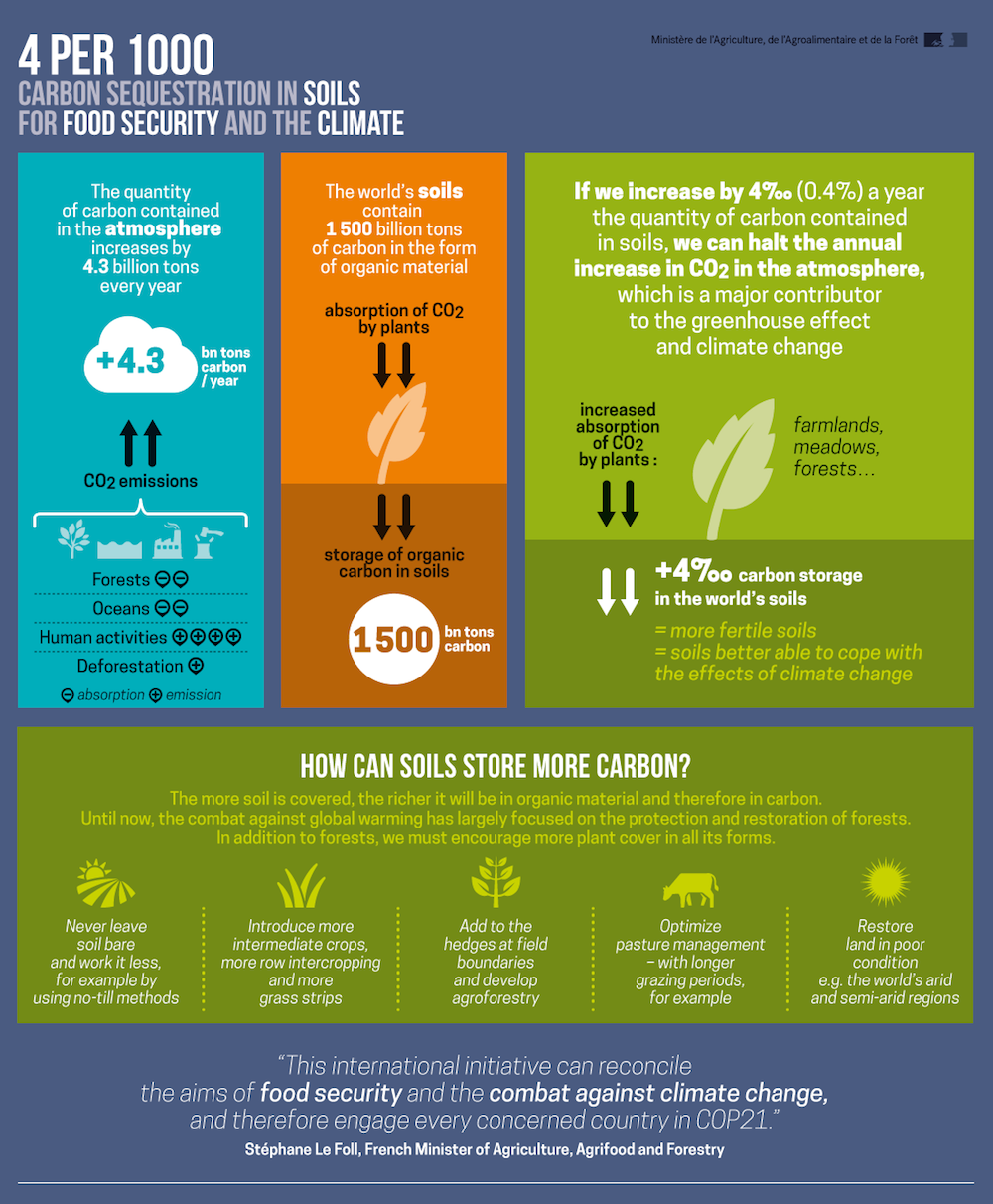The 4‰ Initiative: Soils for food security and climate was launched by France as part of the Lima-Paris Action Agenda. The CGIAR and French Institutes (INRA, CIRAD and IRD) signed an MoU for a 5 year program at the end of 2015 to mitigate climate change through soil carbon sequestration in at least five countries. The International Center for Tropical Agriculture (CIAT) will be instrumental in this program.
According to Deborah Bossio, director of Soil Research at CIAT and co-leader the Regenerating Degraded Agricultural Ecosystems research theme, understanding the numbers is very important. 0.4% (four parts per thousand) a year is the rate of carbon sequestration in soil that is needed to help mitigate climate change. By increasing the soil organic carbon by 0.4% per year, it's possible to offset carbon emissions by doubling the land sink for CO2 in the atmosphere. This would mean sequestering 3.5 Gigaton (Gt) of carbon per year, 0.4 – 1.2 Gt of which can be achieved in croplands. As such, it is necessary to include other land types, such as pasture, grasslands, forests and peatlands.

In addition to offsetting atmospheric carbon emissions, the initiative could also help to restore soil health and fertility, contributing to more sustainable and productive agriculture. Some method that have the potential to achieve both of these goals are: no-till agriculture; improving foraging practices in degraded pastures; evergreen agriculture, which would mean incorporating more trees into farming systems; better irrigation management; and recycling nutrients from waste produced in urban and peri-urban areas.
Learn more:
- 4 pour 1000 website
- Press release from the CGIAR on 4p1000
- CIAT blog post by Deborah Bossio: Soil Organic Carbon and the 4‰ Initiative: Soils for food security and climate
- CIAT blog post: Harvesting Results from the International Year of Soils
- Press Release from allAfrica: CGIAR Consortium Develops Climate Solutions with Soils for Food Security
- Explanation of soils for food security and climate by the French Ministry of Agriculture










